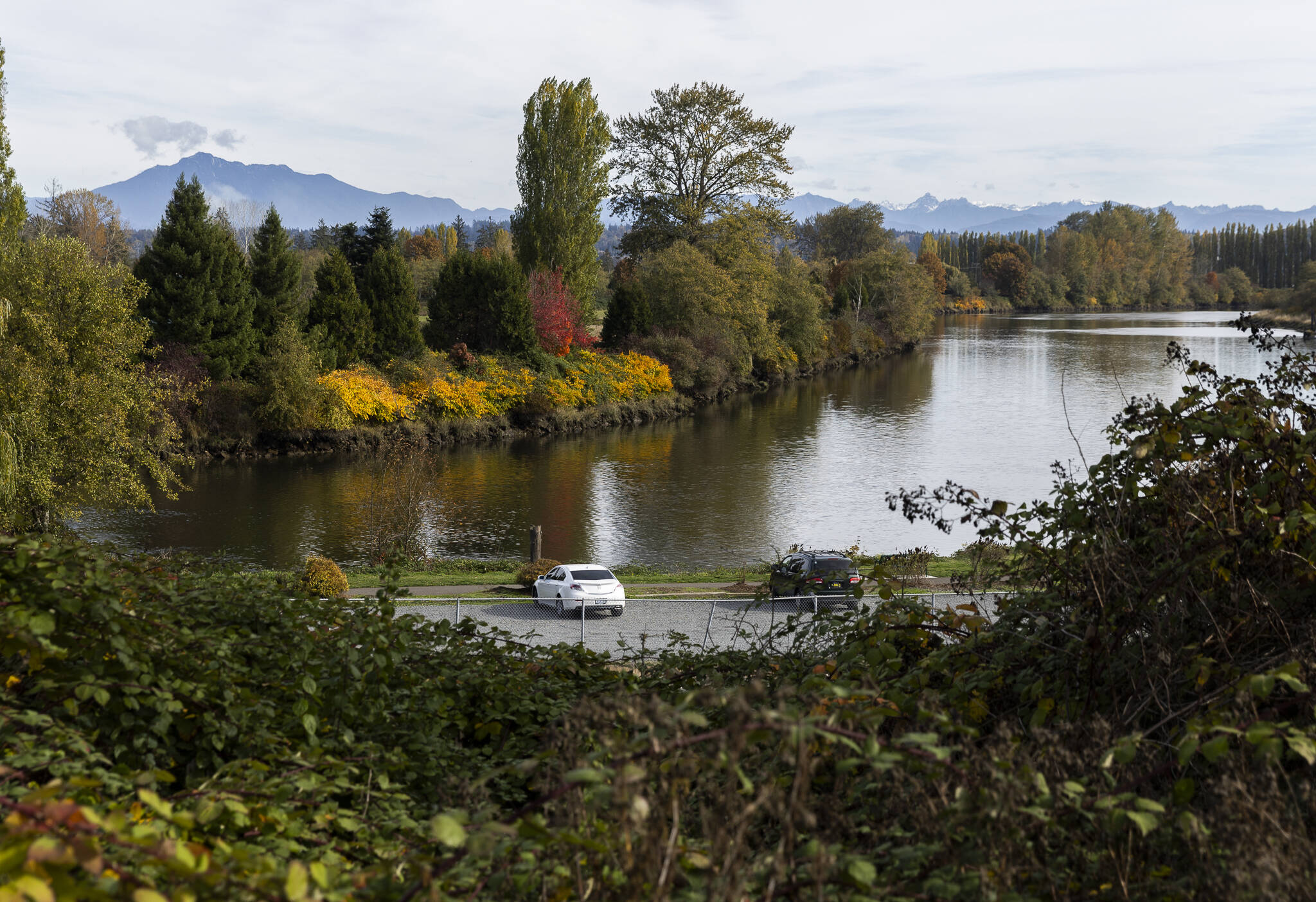EVERETT — A Snohomish County Superior Court judge invalidated the 2024 initiative granting the Snohomish River standing legal rights on Wednesday, citing that the law exceeded local initiative power and conflicted with preexisting state and federal regulations.
Last November, the city of Everett passed an initiative that granted the Snohomish River legal standing rights in court. The initiative allowed city residents to take legal action against activities within city limits that negatively impact the watershed’s health, and added Everett to a growing list of states and countries worldwide that are joining the Rights of Nature movement.
The movement stems from indigenous mindsets that believe environments and natural entities should have the same rights as people to be protected and flourish.
In January, the Master Builders Association of King and Snohomish Counties and local Everett developers, including the Robinett Brothers, Greencity Development and Washington Aggregates & Concrete Association, filed a complaint in Snohomish County Superior Court against the initiative.
The complaint argued the initiative conflicted with federal and state laws, was outside the scope of local initiative power that allows citizens to create or repeal local laws and would cause frivolous lawsuits because scientific certainty wasn’t mandated for someone to file a case on behalf of the river.
The complaint pointed to a former Spokane case, where in 2009 and 2011, a civil action group called Envision Spokane wrote an initiative that said residents had the “right to approve all zoning changes proposed for their neighborhood,” and that all “residents of Spokane possess fundamental and inalienable rights to sustainably access, use, consume, and preserve water drawn from natural cycles” from the Spokane River, its tributaries and the Spokane Valley-Rathdrum Prairie Aquifer.
The Washington Supreme Court ruled the initiative went beyond local initiative power, which Snohomish County Superior Court Judge Jennifer Langbehn cited in her summary judgment on Wednesday.
“I guess we weren’t surprised by the decision, because, as we argued in the court, you know that [the Spokane case] says that this type of initiative is outside of the scope of the local initiative power,” said Brian Holtzclaw, general counsel for the Master Builder Association of King and Snohomish Counties. “I think Judge Langbehn found that it was pretty straightforward.”
Standing for Washington, a political action committee formed to support nature-focused legislation that led the campaign for Everett’s initiative and defended it in court in October, issued a press release on Thursday with its plans to appeal the decision.
“We strongly disagree with the court’s decision to overturn what Everett voters so clearly chose,” said Rachel Kurtz-McAlaine, attorney for Standing for Washington. “Today, if the river is harmed, the community cannot take action unless they can prove personal injury. That’s not justice. This measure changed that – finally allowing residents to defend the river itself. We’re disappointed that the court did not engage with the core legal issues at stake, but this story is far from over.”
Correction: A former version of this story incorrectly stated that Standing for Nature was the political action committee behind the Everett initiative. Standing for Nature is a 501(c)(3) nonprofit, not a political action committee. Standing for Washington is the political committee that formed to lead the initiative campaign.
Eliza Aronson: 425-339-3434; eliza.aronson@heraldnet.com; X: @ElizaAronson.
Eliza’s stories are supported by the Herald’s Environmental and Climate Reporting Fund.
Talk to us
> Give us your news tips.
> Send us a letter to the editor.
> More Herald contact information.

























